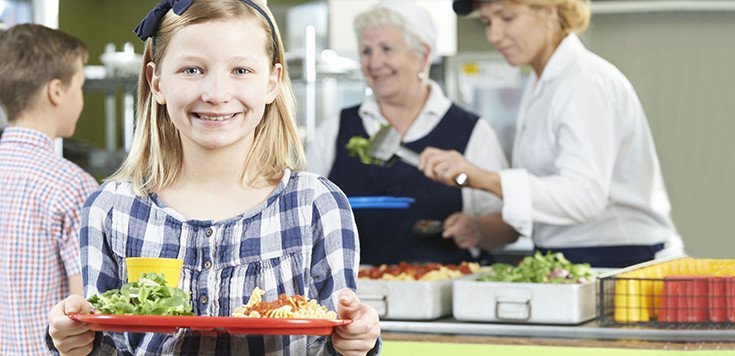This CA School is GMO-Free and Saves Money Serving Healthy Food to Students

Kids that go to this Trinidad, California school enjoy healthy, locally-grown, pesticide-free, non-GMO fare that actually saves the school money.
Sourcing everything from local farmers markets and even growing some of their own vegetables on site in a small garden, in addition to making things from scratch, ensures that children receive a balanced, nutritious meal that doesn’t cost the school a fortune. The school avoids purchasing processed foods, and for eight years now kids have enjoyed food that is the antithesis of ‘fast-food’ nation garbage.
Colleen Kelly, the school’s nutritional director says:
“It’s nice to not feel stressed about the budget, so much, that we’re able to be flexible and get really good, quality food for the kids.”
The meals that the school prepares also give the kitchen staff flexibility to cook with ingredients that are easily sourced and in season. This is a drastic difference to how most school lunches are planned and prepared.
Approximately 30.6 million students in the US typically eat a cafeteria lunch, which means they are more than likely consuming high sugar, high fat, MSG-containing, and high-fructose laden, GM food. With our extremely low standards for feeding our children in school, it’s no wonder that students who eat school lunches are at a higher risk for being an unhealthy weight, as found in a study by the University of Michigan Cardiovascular Center.
Societal Shift: Schools Begin Teaching Children How to Grow Organic, Sustainable Food
Elizabeth Jackson, M.D., MPH, assistant professor of internal medicine at the U-M Health System says:
“This study confirms the current and escalating national concern with children’s health, and underscores the need to educate children about how to make healthy eating and lifestyle choices early on. Although this study doesn’t provide specific information on nutrient content of school lunches, it suggests there is a real opportunity to promote healthy behaviors and eating habits within the school environment. This is where kids spend a majority of their time.”
It looks like kids in Trinidad are way ahead of their peers when it comes to eating right and making good food choices, due to the diligence of their school nutritionist.
